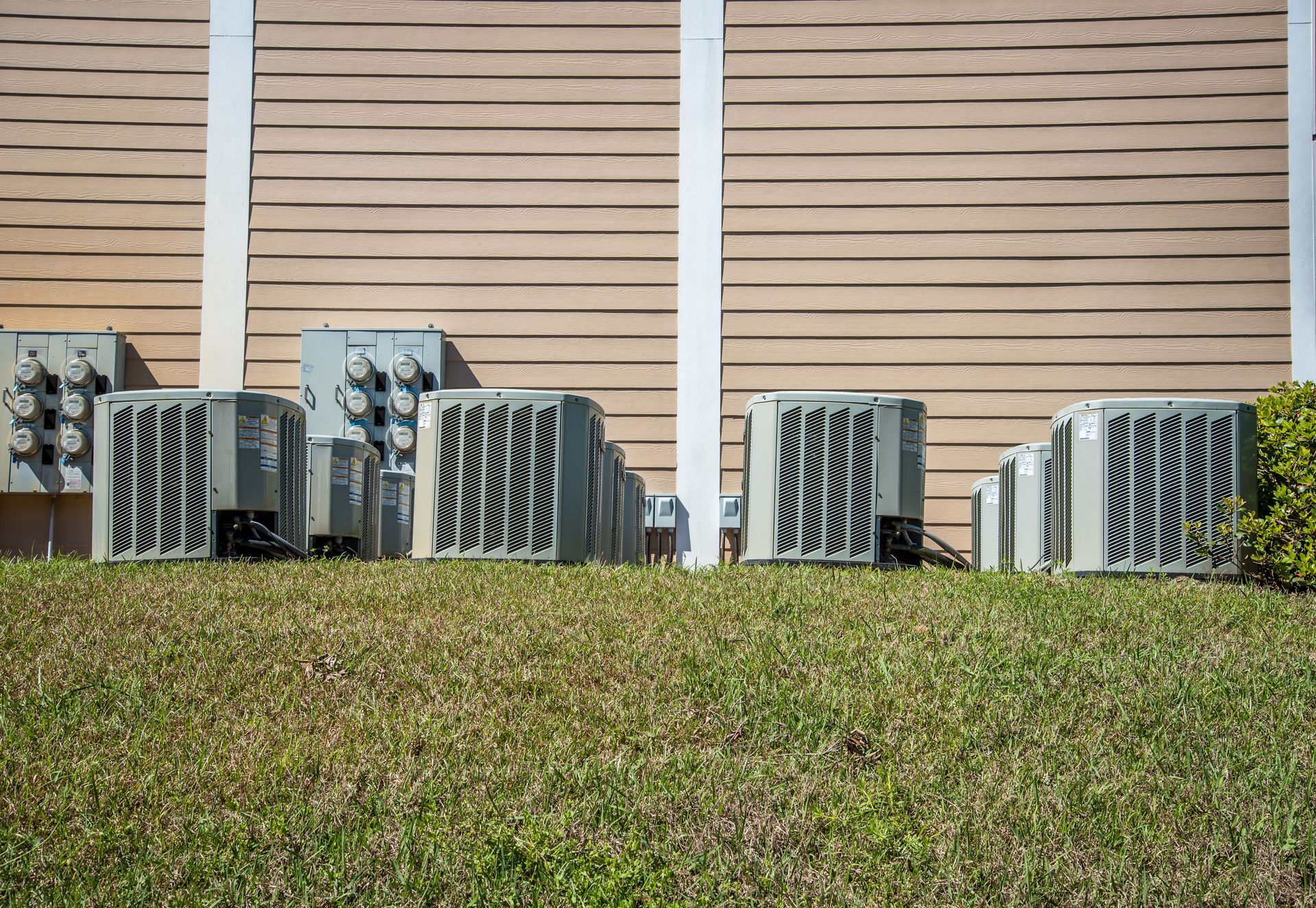November 21, 2025
Air conditioning plays a vital role in maintaining indoor comfort, especially during warm and humid seasons. With advances in HVAC technology and growing consumer expectations for energy efficiency, homeowners often wonder how frequently they should schedule AC installation or replacement to maximize performance and value. While many people assume an air conditioner only needs attention when it breaks down, proactive planning is essential for keeping cooling systems reliable, safe, and cost-effective. In many homes, the AC system is one of the most frequently used appliances, running for months at a time to keep indoor temperatures comfortable. Understanding when to replace equipment—not just repair it—can significantly improve long-term performance and energy savings.
According to Workyard, 88% of U.S. households use air conditioning, with two-thirds relying on central AC or heat pumps. Because AC usage is so widespread, the need for timely replacement becomes even more important. Whether you own a newer high-efficiency system or an older unit showing signs of wear, knowing when to schedule a new installation can save you money and prevent uncomfortable breakdowns. By learning the major factors that influence AC lifespan and performance, you can make informed decisions that protect your home, your comfort, and your budget.
The sections below outline the key considerations that determine how often installation or replacement may be necessary, helping you understand when it is time to contact an AC company for expert guidance.
1. Evaluating System Age and Lifespan
One of the most important indicators of when to schedule AC installation or replacement is the age of your system. Most air conditioners last between 12 and 15 years, although some high-quality units may perform well for longer with proper maintenance. However, even the best systems begin to experience efficiency loss as they age. Older units often struggle to keep up with high temperatures, resulting in longer run times, increased strain, and higher utility bills.
If your AC system is approaching or has surpassed the 15-year mark, it may be time to consult an AC company to evaluate whether a new installation is more cost-effective than continued repairs. As systems age, they tend to suffer from declining efficiency, refrigerant issues, compressor failures, and outdated technology that no longer meets modern standards. Investing in a new system at the right time can significantly improve cooling performance and lower long-term operating costs.
2. Assessing System Efficiency and Operating Costs
Energy efficiency is a crucial factor in determining whether your AC system needs to be replaced. Modern air conditioners are far more efficient than older models due to advancements in compressor technology, refrigerants, and overall design. If you notice a steady rise in your energy bills, even when usage remains consistent, it may signal that your system is working harder than it should.
An experienced AC company can assess the Seasonal Energy Efficiency Ratio (SEER) rating of your current unit and compare it to newer, more cost-effective options. Higher SEER ratings mean improved energy efficiency and reduced monthly costs. Replacing an older system with a high-efficiency model can drastically reduce energy consumption, especially during peak cooling seasons.
Inefficient systems not only waste money but also contribute to unnecessary strain on components, leading to more frequent breakdowns. By replacing an outdated system, homeowners can enjoy better indoor comfort, quieter operation, and significant long-term savings.
3. Identifying Frequent Repair Needs
Another major consideration when deciding whether it is time for AC installation or replacement is the frequency of repairs. While occasional maintenance and minor repairs are normal, repeated breakdowns indicate an underlying problem that may continue to worsen. If you have called an AC company several times within a short period, especially during peak summer months, your system may be nearing the end of its useful life.
Frequent repairs not only become costly but also signal that major components—such as the compressor, evaporator coil, or blower motor—are deteriorating. In many cases, investing in a new system is more economical than continuing to repair an old one. A reliable AC company can help evaluate repair history, identify recurring issues, and recommend whether replacement is a better long-term solution.
Furthermore, constant breakdowns often disrupt your daily routine and create discomfort during hot weather. Planning for installation instead of waiting for an emergency breakdown ensures you remain prepared and comfortable year-round.
4. Considering Changes in Home Size or Layout
Major home improvements or structural changes can also influence how often you need to schedule AC installation or replacement. If you have added square footage through room additions, finished basements, or expanded living areas, your existing air conditioner may no longer be powerful enough to cool the entire home effectively. Undersized systems struggle to maintain consistent temperatures, resulting in uneven cooling, increased wear, and poor humidity control.
On the other hand, if your living space has decreased due to remodeling or layout changes, your current AC system may be oversized. Oversized units tend to cycle on and off too frequently, causing unnecessary strain and failing to properly dehumidify the air. An AC company can assess your home’s size, insulation levels, and layout to determine the correct system capacity for optimal comfort.
Replacing or upgrading your AC system after major home modifications ensures you achieve efficient cooling tailored to your updated living space, preventing long-term performance issues.
5. Monitoring Indoor Air Quality and Comfort Levels
Indoor comfort is a strong indicator of AC system performance. If you notice inconsistent temperatures, excessive humidity, stagnant airflow, or increasing dust levels, your AC may no longer be functioning properly. These conditions signal declining efficiency and system performance, especially in older units.
Poor indoor air quality can also stem from an aging HVAC system that struggles to filter and circulate air effectively. This can lead to uncomfortable living conditions and potential respiratory concerns for sensitive individuals. By contacting an AC company for a full inspection, homeowners can determine whether installation or replacement will improve both comfort and indoor air quality.
Modern AC systems often come with enhanced filtration features and improved humidity control capabilities. Replacing an outdated system can create a cleaner, healthier, and more comfortable home environment.
6. Following Manufacturer Recommendations and Maintenance History
Manufacturers provide clear guidelines on system maintenance, performance expectations, and recommended replacement timelines. If you have maintained your system regularly—including annual tune-ups, filter changes, and component inspections—it may last longer than average. However, neglected systems typically wear out much sooner.
A trusted AC company can review your maintenance history to determine whether your system’s age aligns with expected performance standards. Systems that receive consistent professional care generally operate efficiently for their full lifespan, while those that have been frequently neglected may develop premature failures. Routine maintenance also helps experts identify issues early, extending your system’s longevity and delaying the need for a full replacement.
Replacing your AC system according to manufacturer guidelines ensures optimal performance, reduced repair costs, and long-term reliability. Staying ahead of potential issues prevents expensive emergency breakdowns and keeps your home comfortable throughout every season.
Understanding how often to schedule AC installation or replacement depends on several key factors, including system age, efficiency, repair frequency, home modifications, indoor comfort levels, and maintenance history. By paying attention to these indicators, homeowners can make proactive decisions that prevent costly breakdowns and improve long-term energy savings. With air conditioning used in nearly every household across the country, staying informed about your system’s condition is essential for maintaining comfort and efficiency. For expert guidance, personalized recommendations, and professional service from a trusted AC company, contact Currents and Cooling Inc today.



